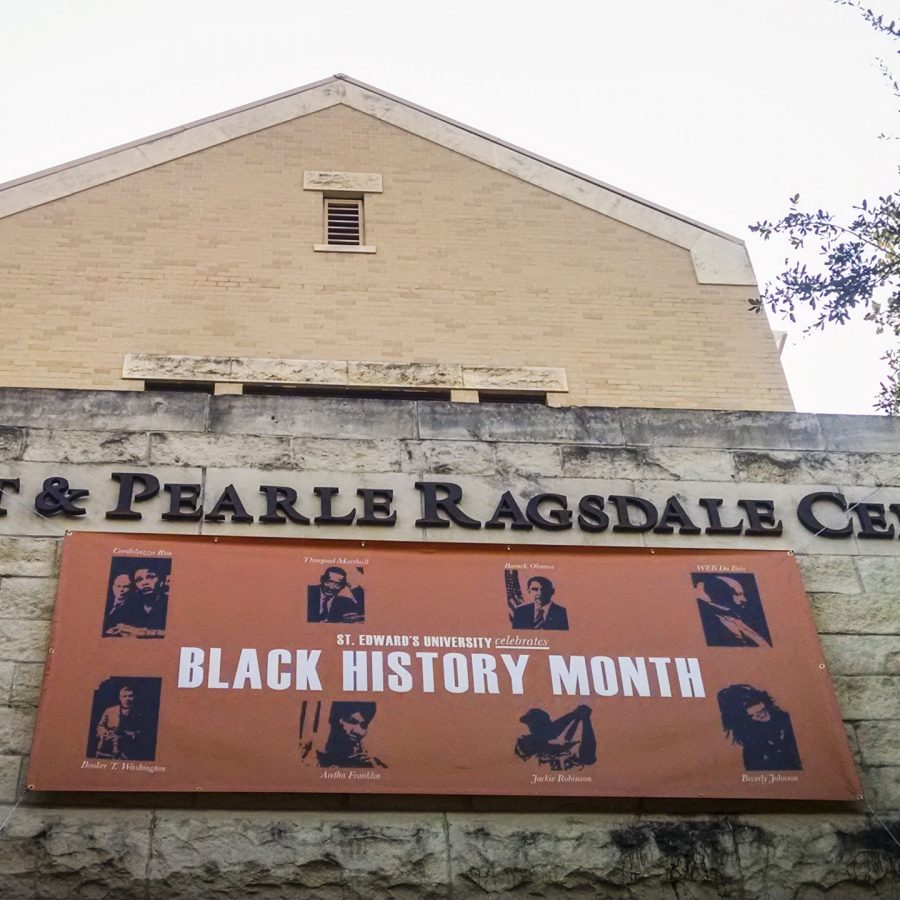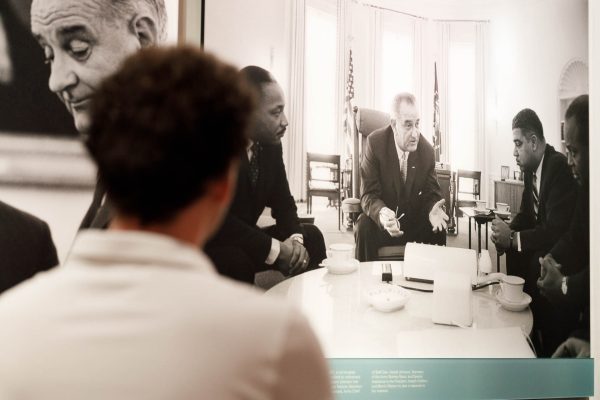Our View: No sign of black history at St. Edward’s University
Every week the editorial board reflects on a current issue in Our View. The position taken does not reflect the opinions of everyone on the Hilltop Views staff. This week the editorial board are Viewpoints editors Erin Downey and Eleanor Fishbourne and Print Editor-in-Chief Jacob Sanchez.
February marks Black History Month, and often times it seems to just come and go. No one really opens an actual dialogue about it, leaving Americans with weird feelings and possible misunderstandings about what the month means. So we decided it’s time to address the month’s significance, specifically to St. Edward’s and its students.
According to St. Edward’s Institutional Research, only about 4.6 percent of St. Edward’s undergraduates are African American. Compared to the amount of white and hispanic students at this school, the figure is next to none. This is arguably one of the reasons it often feels like Black History Month comes and goes. Here we are, over a week in, and no one has said much about it around campus. People ask their friends, “Wait isn’t it like Black History Month or something?” which truly has to change.
Black History Month is a month to celebrate and remember black leaders and black culture. Racial inequality is still an issue, making Black History Month just as important now as it has always been. Looking back throughout the civil rights movement that happened not even 100 years ago gives people of color a glimpse of hope that achieving equality is possible.
Movements like Black Lives Matter prove that the fight to end racial inequality is still being fought in African American’s lives because of frequent police brutality and unfair trials.
Past black leaders like Thurgood Marshall, Rosa Parks, Martin Luther King Jr., and Malcolm X are people that everyone learns about in school, but history class isn’t the only time students should celebrate these leaders of justice and civil liberty.
Black men and women have driven this nation to what it is today. Within a few generations, black people went from property to wonderful politicians, lawyers, doctors and professors.
We need to draw more attention to Black History Month simply because it matters. It matters because it shapes the America we have today. It matters because every single person needs to understand the amount of blood sweat and tears that African Americans have shed in the past and still shed today. It matters because racism still exists.
Black History Month helps ensure that understandings of the past extend beyond our history books and into the lives of students. It is a reminder to us all to continue Carter G. Woodson’s commitment: to bring greater regard for the contributions of African Americans to this country, to understand and overcome a legacy of oppression and racism, and, in so doing, to further racial harmony among us all. As Martin Luther King Jr. put it
“Our lives begin to end the day we become silent about things that matter.”












